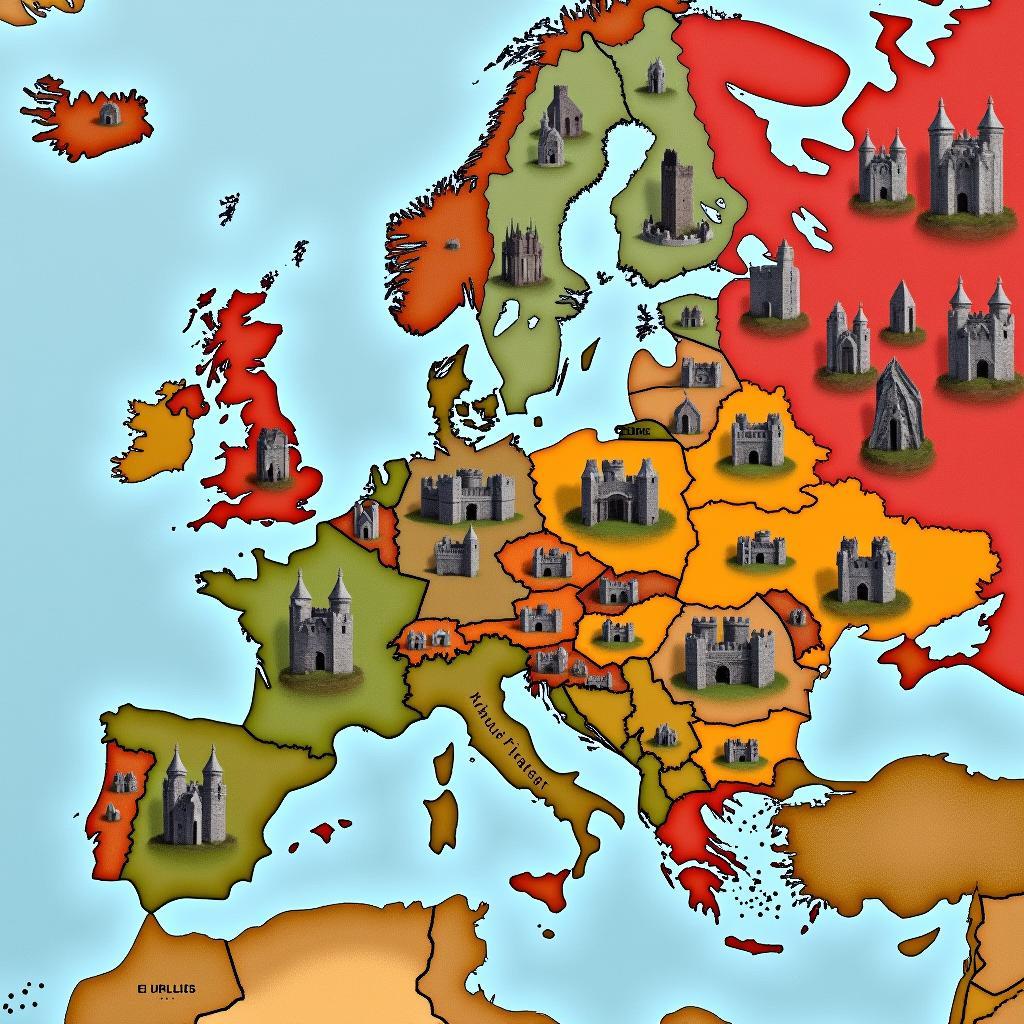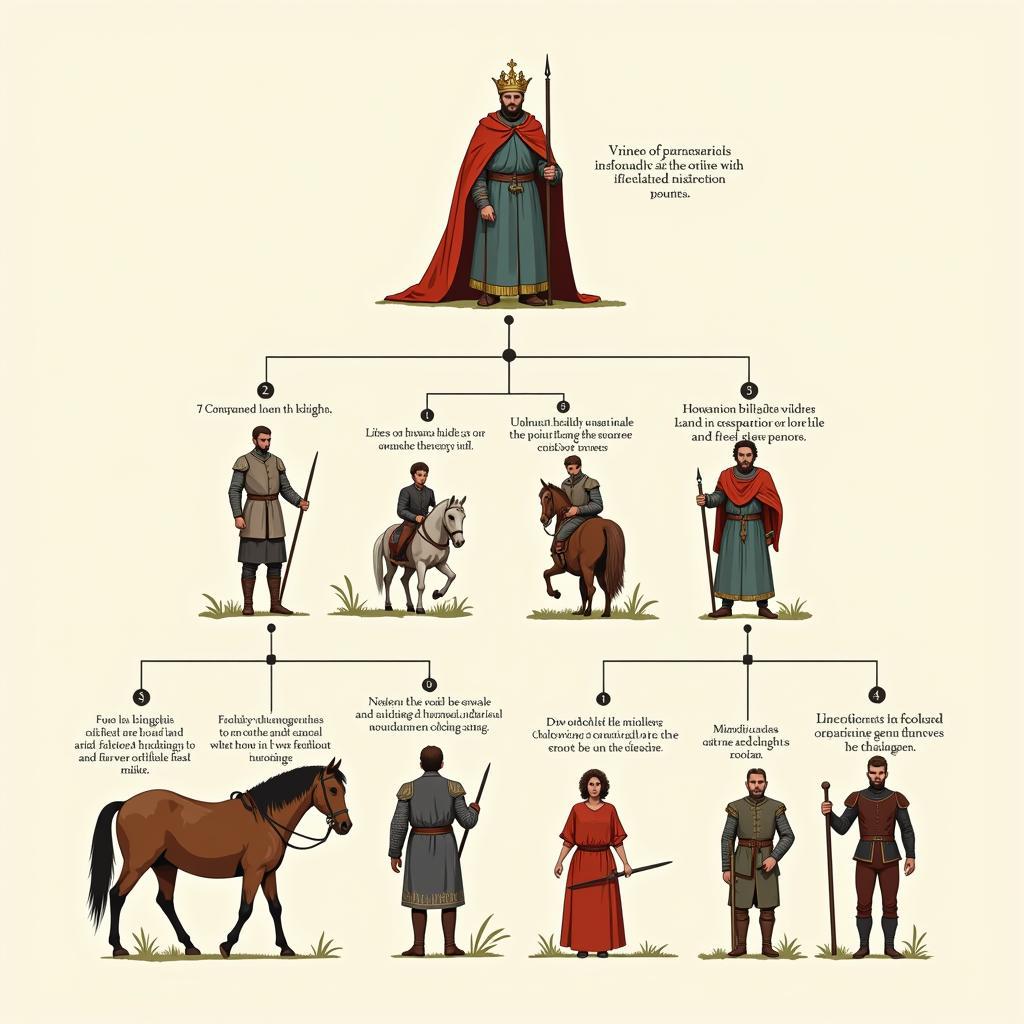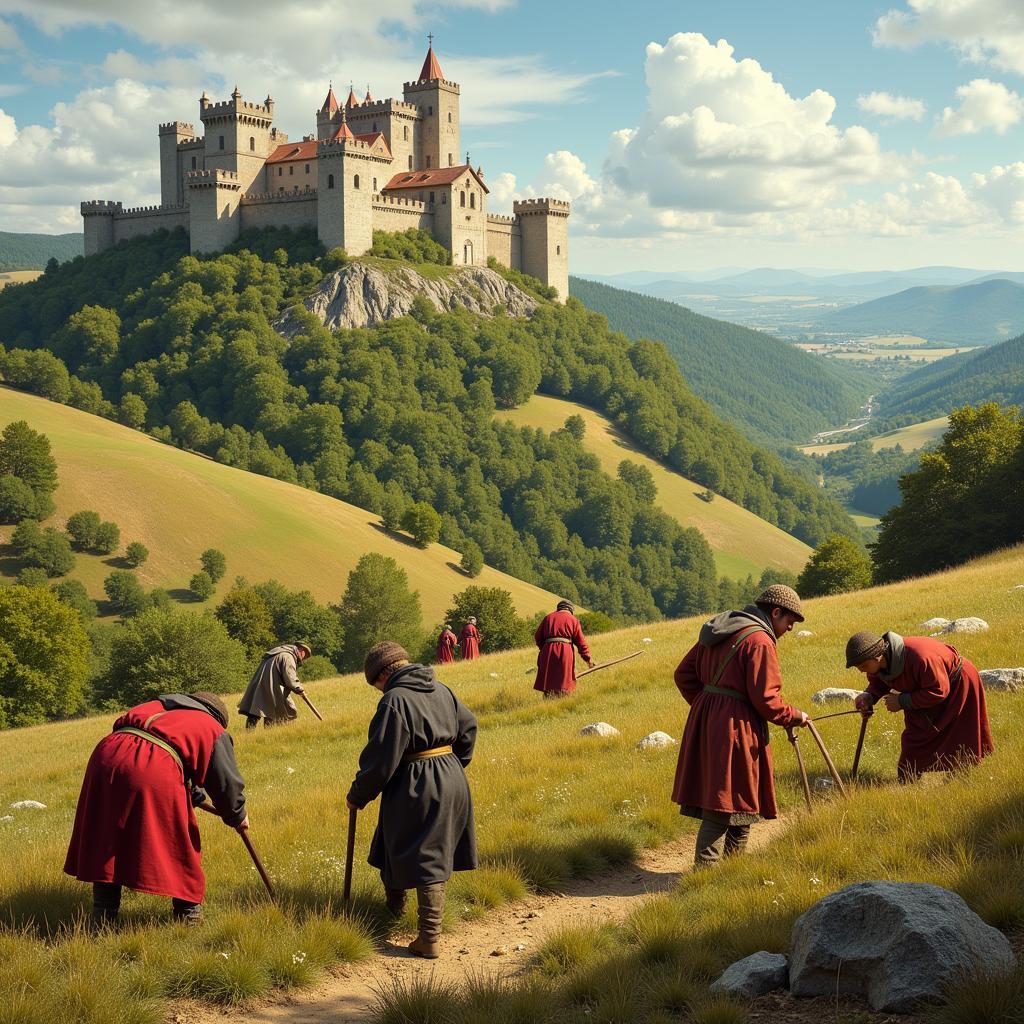Europe became a feudal society due to a complex interplay of factors following the collapse of the Roman Empire in the West. The decline of centralized Roman authority left a power vacuum, creating widespread instability and insecurity. This tumultuous period saw the rise of localized power structures as people sought protection and stability amidst the chaos.
The Fall of Rome and the Rise of Feudalism
The disintegration of the Roman Empire, culminating in 476 CE, wasn’t a sudden event but a gradual process spanning centuries. Weakened by internal strife, economic woes, and constant barbarian invasions, the once mighty empire fractured into smaller, independent kingdoms. This fragmentation, coupled with the loss of Roman infrastructure and administration, created a climate ripe for the emergence of feudalism. Without the unifying force of Rome, people turned to local lords for protection and leadership, setting the stage for a new social and political order.
Decentralization of Power: A Key Factor
The absence of a central authority was a critical factor in why Europe became a feudal society. With no overarching government to maintain law and order, local lords stepped in to fill the void. These powerful individuals, often former Roman officials or military leaders, commanded their own armies and controlled vast tracts of land. They offered protection to those who swore allegiance to them, creating a hierarchical system based on loyalty and service.
 Decline of the Roman Empire and the Rise of Feudalism
Decline of the Roman Empire and the Rise of Feudalism
The Role of Invasions
The constant threat of invasions, particularly from Viking, Magyar, and Muslim forces, further fueled the development of feudalism. These raids created a pervasive sense of insecurity, driving people to seek the protection of fortified settlements and powerful lords. In exchange for this protection, individuals pledged their loyalty and service, solidifying the feudal structure. The need for defense became a cornerstone of the system, shaping its military character and the relationships between lords and vassals.
The Importance of Land Ownership
Land ownership played a crucial role in the feudal system. Lords granted land, known as fiefs, to their vassals in exchange for military service and other obligations. This system, known as vassalage, created a complex web of relationships based on land tenure and mutual obligation. The land itself became the source of wealth and power, and control over it dictated the social hierarchy.
 Feudal Society: Land Ownership and Vassalage
Feudal Society: Land Ownership and Vassalage
The Influence of the Church
The Catholic Church, a powerful institution throughout the Middle Ages, also played a significant role in the development of feudalism. Bishops and abbots often held large estates and exercised considerable political power, becoming integrated into the feudal hierarchy. The Church’s influence helped legitimize the feudal system, providing a moral and religious framework for the relationships between lords and vassals.
The Life of Peasants
The vast majority of the population in feudal society were peasants, who worked the land and provided the economic foundation for the system. They were tied to the land and obligated to provide labor and a share of their produce to their lord. While not slaves, they had limited freedom and were subject to the will of their lord. Their lives were often harsh and precarious, dependent on the harvests and the whims of their overlords.
 Medieval Peasant Life in Feudal Society
Medieval Peasant Life in Feudal Society
Conclusion
Europe Became A Feudal Society Because of a confluence of factors, including the collapse of Roman authority, the rise of local lords, the constant threat of invasions, and the influence of the Church. This system, based on land ownership, loyalty, and military service, shaped European society for centuries. Understanding why Europe became a feudal society is crucial to comprehending the development of European history and the complexities of the medieval world.
FAQ
- What is feudalism? Feudalism was a social and political system in medieval Europe based on land ownership, loyalty, and military service.
- Why did feudalism develop? Feudalism developed primarily due to the collapse of the Roman Empire and the resulting instability and insecurity.
- What was the role of the Church in feudalism? The Church legitimized the system and held significant land and political power.
- Who were the peasants in feudal society? Peasants were the majority of the population, tied to the land and obligated to serve their lord.
- How did feudalism impact Europe? Feudalism shaped European society, politics, and economy for centuries.
- What events led to the decline of feudalism? The rise of centralized states, the growth of towns, and changes in warfare contributed to feudalism’s decline.
- What replaced feudalism? Feudalism gradually gave way to more centralized forms of government and new economic systems.
For further support, please contact us at Phone Number: 02043854663, Email: [email protected], or visit our office at Zone 34, Bac Giang, 260000, Vietnam. Our customer service team is available 24/7.